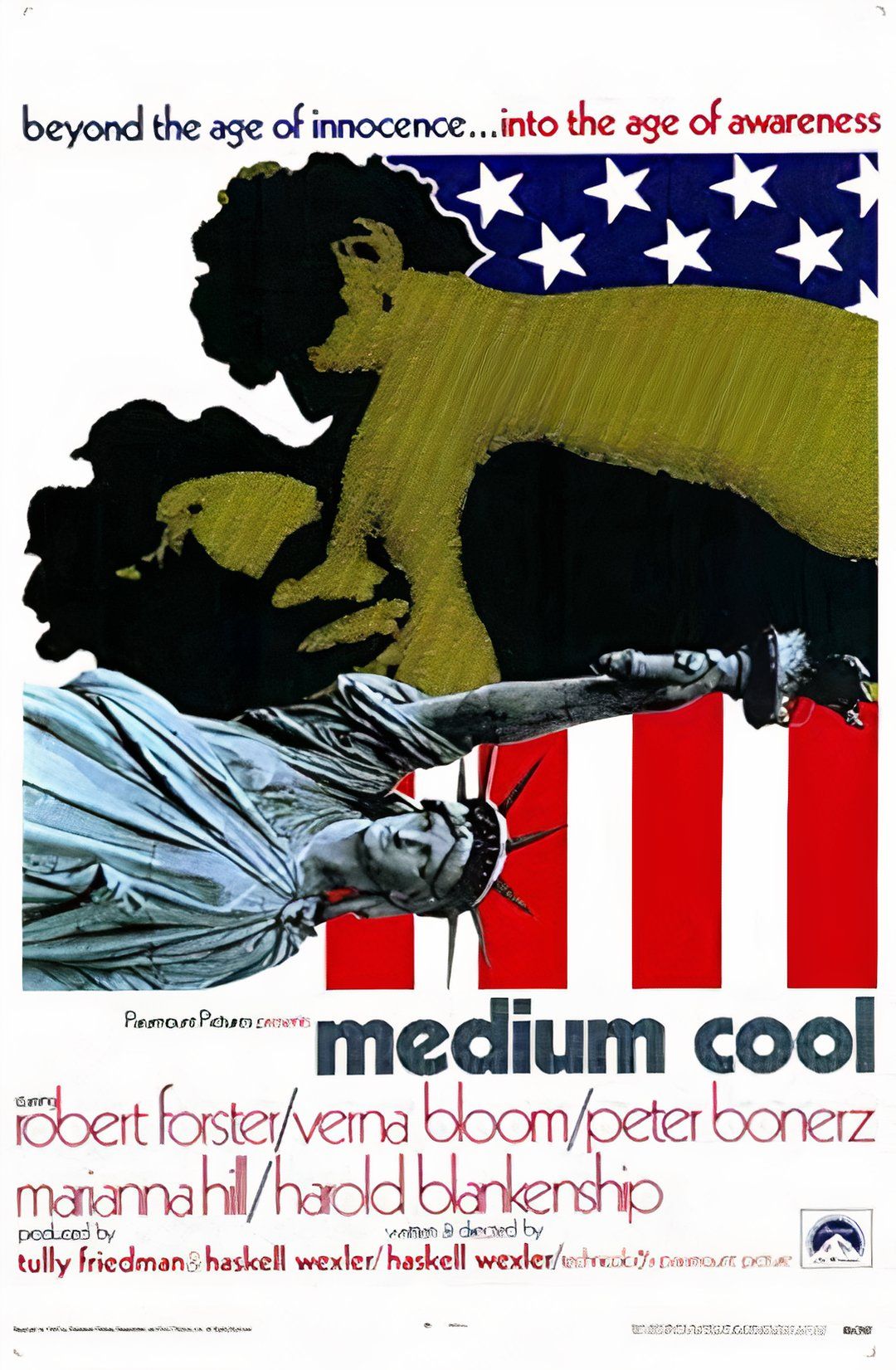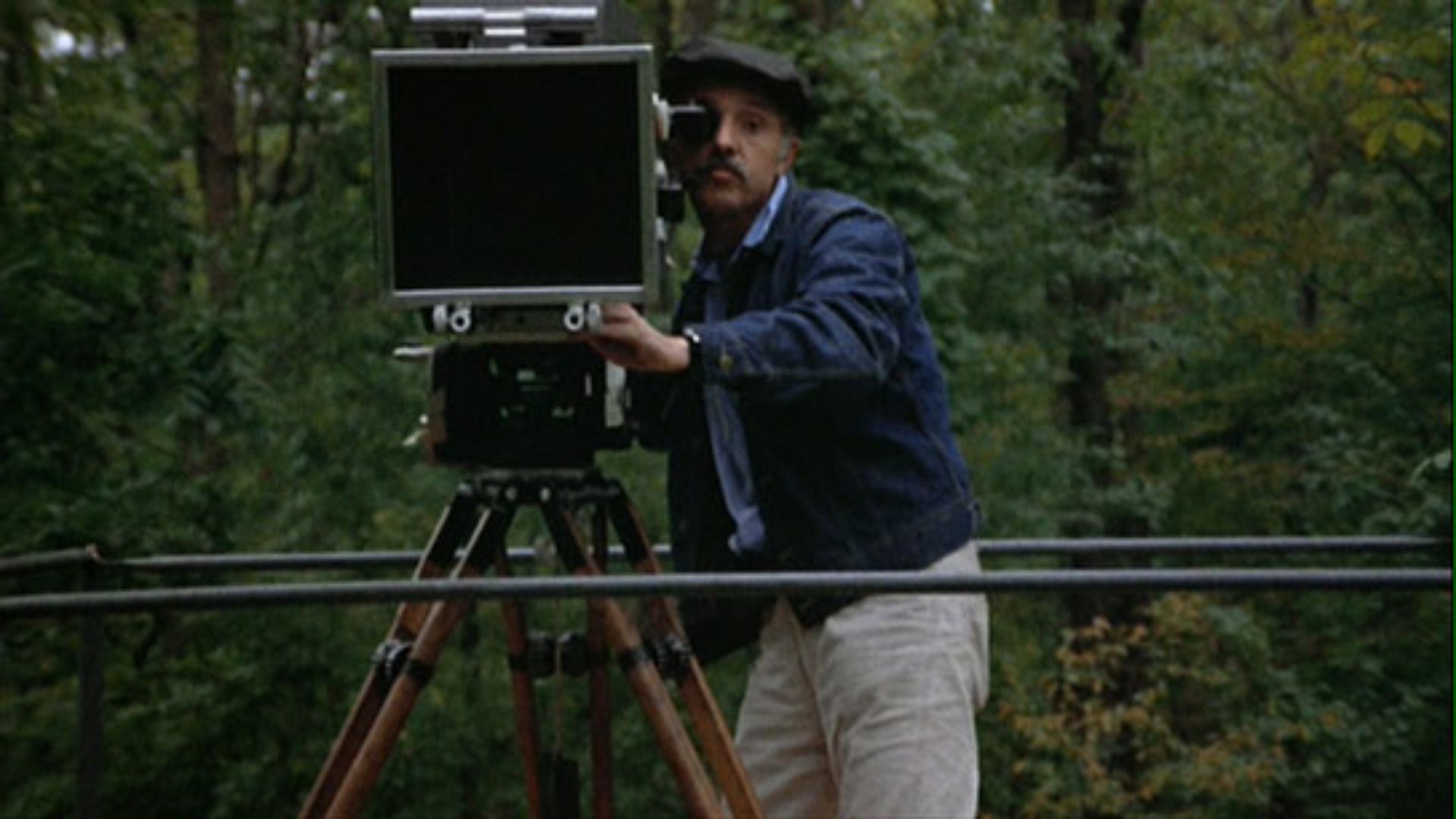The President of the United States of America has stepped down, opening the Democratic Party up to a replacement for the incumbent candidate. The Democratic National Convention will take place in Chicago, and the party is desperately working behind the scenes to make sure things don’t devolve into chaos. Meanwhile, anti-war protesters and students with other concerns are marching, demanding more from the Democratic ticket. Let’s not forget that a presidential candidate has just been shot. What am I talking about? Well, both the summer of ’24 and the year 1968, and the meta film Medium Cool, which Roger Ebert described this way in 1969:
A movie unlike anything you have seen and possibly unlike anything you want to see. It is likely to be this autumn’s most controversial film.
Biden, Harris, Trump, Vance, Chicago, Gaza: Everything Is Going On Now
The summer of ’68 saw nearly the exact same situation that America is facing today. In mere weeks, the DNC will be held in Chicago, and the party’s nominee has just stepped down. Joe Biden, like Lyndon B. Johnson in 1968, has decided to pass the torch. As Lenin said, “There are decades when nothing happens, and there are weeks when decades happen.”
The past few weeks have seen President Joe Biden broadcast his physical and mental instability to the nation in a tragic debate and subsequent awkward interviews. His rival and former President, Donald Trump, survived an assassination attempt. He picked a tech valley crypto-bro pro-war candidate as his Vice President in J.D. Vance. And now Kamala Harris is positioned to fight them both.
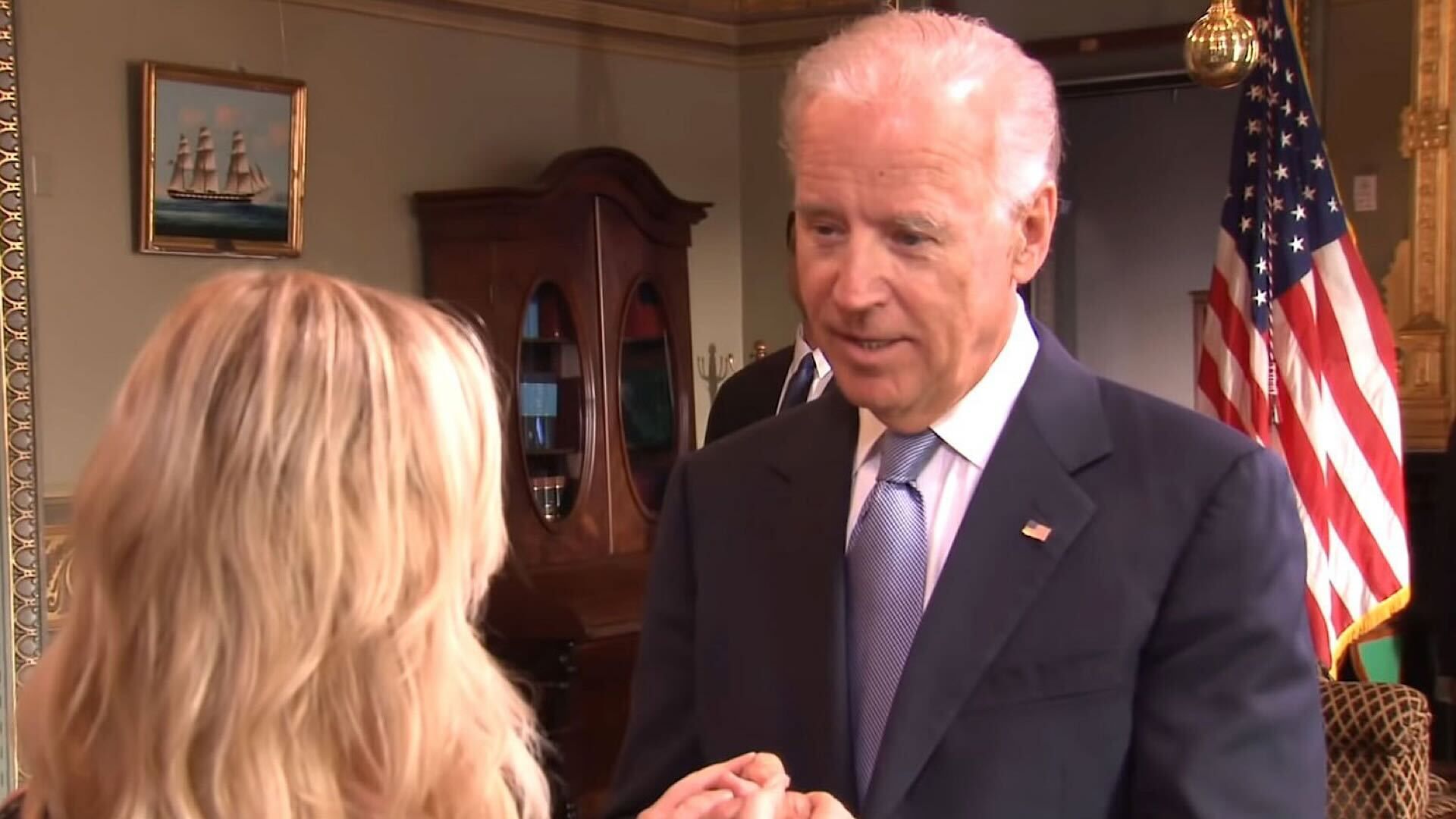
Related
Hollywood – and Donald Trump – Reacts to Joe Biden’s Shock Election Withdrawal
As Joe Biden announced He will not seek reelection as President, Hollywood stars such as Mark Hamill and Jamie Lee Curtis shared their thoughts online
It’s been, for all intents and purposes, an insane month. I’m nearing 35, and while moments of the Clinton and Bush presidencies had reached a similar apoplectic tone, nothing in my lifetime has compared to what has transpired in July 2024. I don’t know where it’s heading, and I don’t know whether it’s good or bad yet. I don’t know much of anything, except about movies.
As such, there is one film that, in my heart of hearts, I know is important right now. Yes, I’ve recently listed the 30 best movies of 2024, and I stand by that. But when it comes to the most important film for any American to watch this year, the most crucial cinematic text for our culture right now, I have to defer to Haskell Wexler’s X-rated 1969 masterpiece, Medium Cool, more than any film actually released this year. Here’s why.
Medium Cool Is Crucial Because 2024 Mirrors 1968
First, if you think 2023 and 2024 have been seismic political and cultural years, they are but a 4.0 magnitude compared to the earth-shattering moments of 1968. That was arguably the year in which the world could’ve changed for the better (from Prague to Paris, Atlanta to Algiers), but the good ones lost, and we’ve gone downhill since then in many ways.
As I mentioned, the presidential race of 2024 is eerily similar to what it was in 1968, what with the President stepping down from the Democratic ticket, with the party’s convention to be held in Chicago that year, with political assassinations and violent wars raging around it. I mean, Jesus Christ, Robert F. Kennedy was assassinated in ’68, and his son is running in ’24, and will probably endorse the candidate who was just nearly assassinated himself (Trump). A note to anyone or anything that is controlling the simulation: Your matrix is a bit too unstable and obvious at the moment.
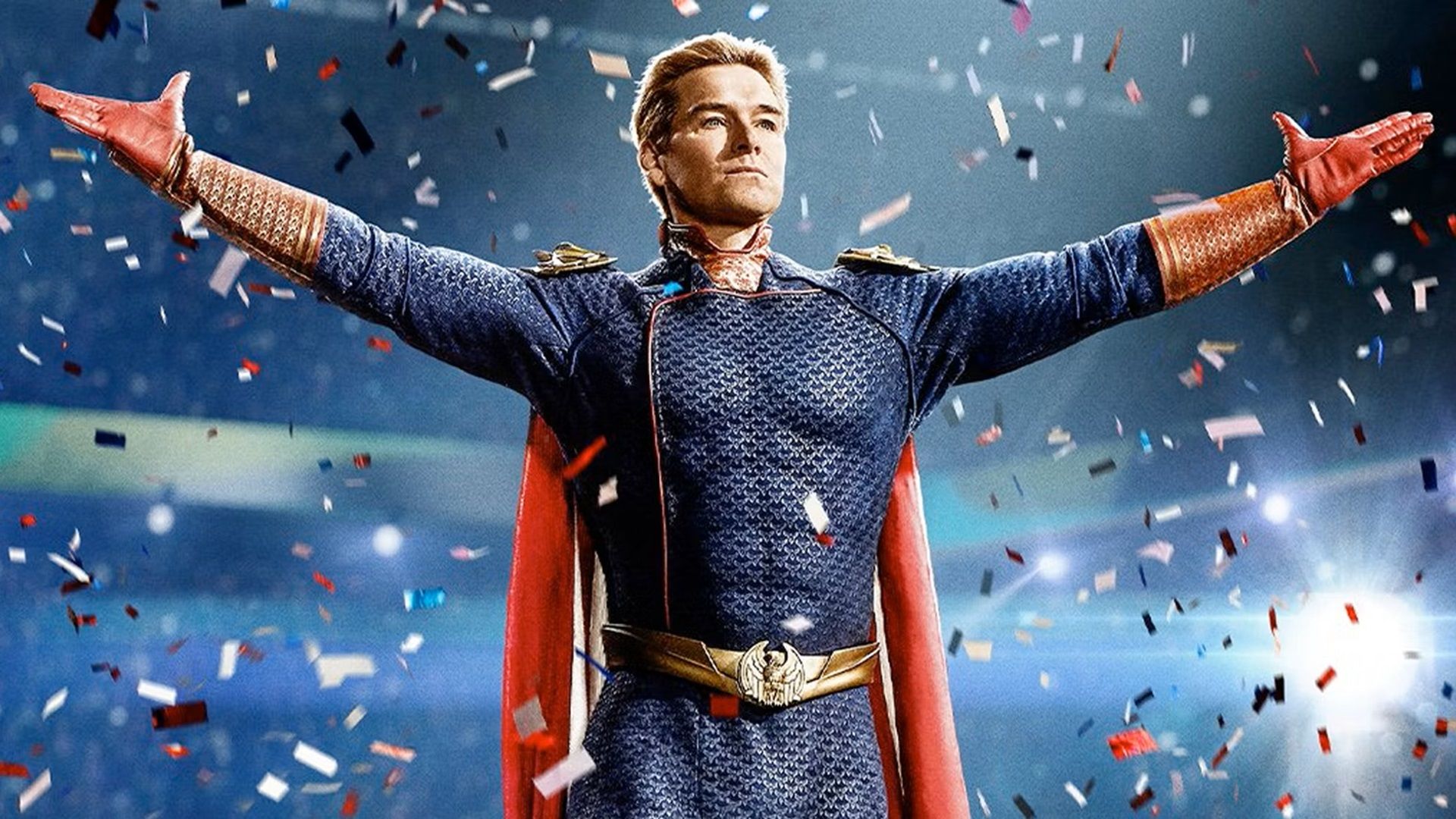
Related
The Boys Season 4 Finale Now Comes With a ‘Trigger Warning’ Following Trump Shooting
Amazon and The Boys want to make it clear that any similarities between The Boys finale and the recent Trump shooting are purely coincidental.
In ’68, it was Vietnam. In ’24, it’s Gaza (and Ukraine). College campuses were brimming with protesters then and now. While many films have captured the anti-war sentiment of both respective eras (Hearts and Minds and Israelism, for instance), there’s really only one American film that perfectly captured the feeling of ’68, right at that moment when the DNC erupted and the police of Chicago tore down the peaceful protesters. There was only one American film that honestly explored the election and its connection to Civil Rights, Vietnam, and economic inequality, while also commenting on the way the mainstream media had defiled and distorted the true news of the day. That film was Medium Cool.
See the Chaos of 1968 in the Video Below:
A Cameraman Gets Involved in Real Riots
Medium Cool was written, directed, and photographed by Haskell Wexler, one of the great cinematographers. Just look at this man’s credits as director of photography in as many years as a baker’s dozen:
|
Haskell Wexler Movie |
Date |
|---|---|
|
The Loved One |
1965 |
|
Who’s Afraid of Virginia Woolf? |
1966 |
|
In the Heat of the Night |
1967 |
|
Faces |
1968 |
|
The Thomas Crown Affair |
1968 |
|
The Conversation |
1974 |
|
One Flew Over the Cuckoo’s Nest |
1975 |
|
Bound for Glory |
1976 |
|
Coming Home |
1978 |
Cinephiles will surely appreciate Haskell Wexler’s incredible use of close-ups and his contribution to the invention of what’s known as cinéma vérité, a kind of docu-realistic style and method of shooting pictures that would influence documentary film, found footage horror, and lo-fi indie cinema for decades to come. Wexler incorporated his documentary work into his first feature film as a director, which was originally very different from what Medium Cool became. But, as any documentarian would understand, the story was in charge of him and not the other way around. When the DNC came to Chicago and the entire environment changed, his film changed with it.

Related
Home Alone 2 Star Found Guilty on 34 Felony Charges
The actor and co-writer of the book Trump: The Art of the Comeback is now a convicted felon, bigly.
While there is, of course, a fictional narrative within the film, it is situated within the context of very real things. The film follows a cocky television news cameraman (played by Robert Forster), whose life as a lackadaisical playboy is interrupted by a variety of forces beyond his control. First, he meets a single mother whom he quickly falls for. Next, he realizes that his TV station is possibly in cahoots with the FBI and police forces, which are using the news and his work to locate political dissidents. Finally, in resignation, he confronts the fact that he is utterly insignificant compared to the violent political upheaval (and metaphysical chaos) which surrounds him. Aren’t we all?
The famous final act of Medium Cool places the main characters outside the Democratic Convention and in the crosshairs of the National Guard, masses of protesters, and a brutal force of Chicago police. The actors intermingled with the surrounding reality of the escalating situation, with Wexler and his crew eventually getting tear-gassed as the proverbial sh*t hit the fan. As the camera dips down in the crowd, we hear the now immortal line, “Look out Haskell, it’s real!”
An X-Rated Film Becomes Cinema’s Guernica
Medium Cool was, for all intents and purposes, a hit, at least over time. It was incendiary at the moment it was released, as anything which accurately captured the chaos of 1968 would be. Roger Ebert called it a masterpiece and ranked it the second-best film of the year (among similarly political movies like Z, Weekend, and if…). In one of his greatest reviews of all time, Ebert wrote, “Medium Cool is finally so important, and absorbing because of the way Wexler weaves all these elements together. He has made an almost perfect example of the new movie.” The New York Times’ Vincent Canby went so far as to call it the cinematic equivalent of Picasso’s perfect painting, Guernica:
The result is a film of tremendous visual impact, a kind of cinematic Guernica, a picture of America in the process of exploding into fragmented bits of hostility, suspicion, fear and violence.
While critics and countercultural movements wanted everyone to see it, the MPAA certainly didn’t. They gave the film a notorious X rating, supposedly due to language and nudity. Looking back on the rating, Wexler told Paul Cronin, “What no one had the nerve to say was that it was a political X.” After enough pushback, the rating was changed to R the next year, in 1970.
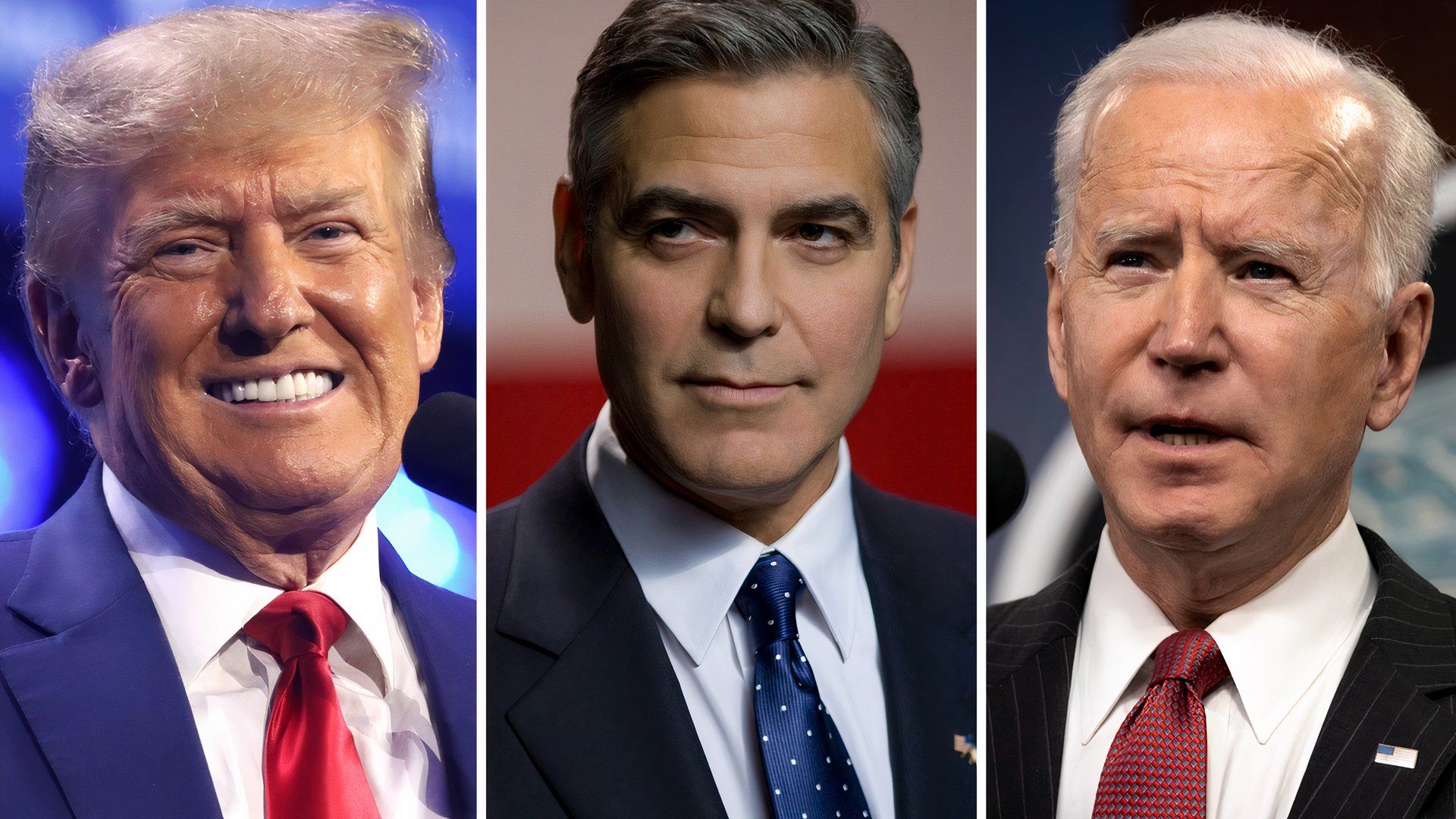
Related
Donald Trump & Joe Biden Fire Back at George Clooney Over Op-Ed: ‘Fake Movie Actor’
George Clooney’s recent political op-ed is receiving backlash from Joe Biden and Donald Trump.
Medium Cool derives its title from the work of social theorist Marshall McLuhan, the man behind the infamous axiom, “The medium is the message.” His thoughts on how technology (like the then-nascent medium of television) influenced a generation of artists and philosophers, especially filmmakers. These ideas are crucial for Medium Cool, because while the film is about the sociopolitical unrest of 1968, it is much more about how we view that unrest and how it is broadcast to the world, and what changes in that process.
To McLuhan, there are “hot” and “cold” mediums. Hot media (writing, radio) contains enough direct information for one sense to completely focus a person, and can be powerful enough to influence people or provoke fiery action. Cooler media (telephones, television) is more scattered among the senses, less complete, and thus more participatory, requiring someone to piece things together. The problem is that, while all forms of media change our relationship with reality, cool media warps our perception much more because it requires more involvement. As Lieutenant Commander K. C. Jacobsen, USN, wrote in the March 1975 issue of Proceedings:
“The real issue is the conflict between appearance and reality, a disjunction that pervades every aspect of our lives and is the basis of television’s uniqueness as a news media.
Television makes events real; over an extended period it brings about changes in the viewer’s perception of reality
that are basic and often not consciously realized. It alters both the dimensions and the form of the event and causes it to appear to be something that it is not.”
Which brings us to the role of television in 1968, in Medium Cool, and today. Medium Cool is all about television and how it had warped politics. As McLuhan himself said, “Television brought the brutality of war into the comfort of the living room. Vietnam was lost in the living rooms of America – not on the battlefields of Vietnam.” It also brought Presidential debates and conventions, student protests, and police brutality into audiences’ homes, mixing the facts with entertainment and advertisements, transforming how we perceive all of those things. Medium Cool had the cajones to ask, “Is this a good thing? Has reality become a TV show?”

Related
Donald Trump Laments ‘The Late, Great Hannibal Lecter, He’s a Wonderful Man’
For whatever reason, presidential candidate Donald Trump has taken to using one of film history’s greatest villains as part of his speeches.
The World Is Broken, Get Real
If things feel “less real” these days than usual, maybe it’s due to the ramifications of all this, what Medium Cool was attempting to explore. A reality star former President, running again and leading in the polls despite being a convicted felon. A current President who can barely complete a sentence. A Republican National Convention that had wrestler Hulk Hogan and televangelist Franklin Graham speaking back to back. Crowds of people wearing fake bandages on their ears in some kind of solidarity with a nearly assassinated former President. Russia expanding through Ukraine, Israel expanding through Gaza. People filming themselves shooting guns at 12-packs of Bud Light. Logan Paul.
Medium Cool was released in 1969, after everything was over. Richard Nixon was President, and the Vietnam War would continue. Student and worker protests in France had been largely defeated, and the Soviets had expelled the liberals and radicals from Czechoslovakia. The most revolutionary moment of the 20th century had passed away. Instead, there was entertainment, sweet, placating entertainment. We watched the Moon landing and The Brady Bunch on TV. It was cool.
They say “the revolution will not be televised,” because any real revolution won’t just be brought to audiences’ living rooms; it has to be the other way around. After mirroring its opening shots but inverting them tragically, Medium Cool ends with Haskell Wexler himself on a crane, turning his camera to face the audience. It’s a provocation. Are you going to keep watching, or are you going to do something? For the next four months, with everything going on, will you just watch TV, or will you get out there and get real?

